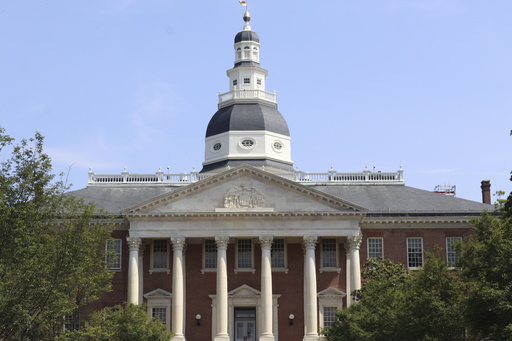
A group of lawmakers in Maryland advanced a proposal on Tuesday that would empower a state board to limit the amounts that state and local governments pay for certain high-cost prescription medications for their employees. This initiative represents the latest effort by a state to address the rising expenses associated with these expensive drugs.
The Legislative Policy Committee, which convened for the vote, supported the plan with a margin of 16-5. This proposal allows the Maryland Prescription Drug Affordability Board, established by the Maryland General Assembly in 2019, to proceed with implementing these pricing caps. The board operates as an independent entity, comprising five members, supported by an advisory council of 26 members.
House Speaker Adrienne Jones, a Democrat and co-chair of the committee, expressed confidence in the board’s ability to engage with stakeholders as they carry out the proposed action plan. “We can and must make some prescription drugs more affordable without upending the marketplace,” she stated, emphasizing the board’s commitment to collaboration throughout this process.
Conversely, Senator Steve Hershey, the Senate minority leader and a Republican, voiced skepticism regarding the plan. He pointed out that similar price cap initiatives in other states have not been successful, highlighting concerns raised by manufacturers about the potential negative impact on drug accessibility. Hershey noted that the limits could result in detrimental effects on the availability of prescription drugs.
Other states, including Colorado, Minnesota, and Washington, have also established boards with similar authority to impose price caps. Hershey remarked, “There are concerns about accessibility to prescription drugs,” suggesting that limiting the costs might yield adverse consequences.
It’s worth considering potential legal complications, as recent developments include a constitutional challenge related to a federal program that permits Medicare to negotiate lower prices for commonly used medications. This program, created under the Inflation Reduction Act of 2022, has faced scrutiny, with a federal appeals court recently reviving challenges to its implementation. The initial batch of ten drugs targeted for negotiation was detailed last year, with new pricing scheduled to take effect in 2026.
Hershey further clarified that the Maryland price-cap initiative specifically addresses drugs purchased for state and local government employees, indicating that it may not lead to price reductions for all residents in Maryland. He characterized the proposal as a “budget maneuver,” suggesting that it addresses only a narrow segment of the market.
Andrew York, the executive director of the Maryland Prescription Drug Affordability Board, explained that the plan encompasses a comprehensive review of various strategies to make prescription medications more affordable, not solely focused on establishing upper-payment limits. York stressed that these initiatives could extend benefits beyond state and local government employees.
“We do expect that this work can benefit all Marylanders, potentially through our non-upper-payment limit policies, and again we think that those are just as important as the upper payment limits, if not more,” York stated, emphasizing the board’s commitment to evaluating broader policies.
York also emphasized that limiting the initial scope to state and local employees serves as a testing ground for the feasibility of the policy.
Supporters of the price caps are already planning to advocate for an expansion of the law in the next legislative session, aiming to extend its applicability to all Maryland residents. Vincent DeMarco, president of the Maryland Health Care For All Coalition, expressed optimism that the board might soon implement price caps for state and local government employees. The board has scheduled meetings for later this month and November.
“Nothing’s in stone, but we are hopeful that they will use this time to actually make some drugs more affordable for state and local governments in 2025,” DeMarco stated, adding that the coalition he leads will work to broaden the board’s powers to impose upper-payment limits on medications for all Marylanders in the upcoming legislative session.
